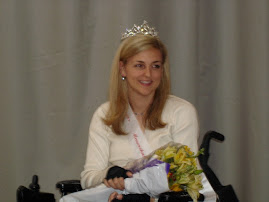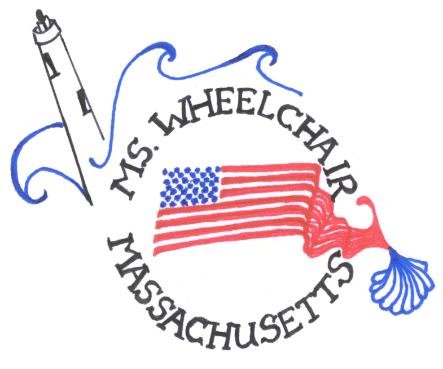Even though we live in a world which seems to lean too heavily sometimes on Political Correctness (PC), it is still important to avoid negative connotations and attitudes when referring to or about someone who may be different from ourselves. This is especially true regarding people with disabilities.
A basic rule of thumb is to make reference to the person first, and then the disability, such as: "a person with a disability," rather than a "disabled person." Always use an adjective as a description, not as a priority. Here is a good example: always say, "the architect who uses a wheelchair," rather than "the wheelchair architect."
The words we choose to use are also important. Some are acceptable while others may be considered outdated or even offensive. Below are some important distinctions.
Do Not Use...
confined to a wheelchair
handicapped
crippled
victim
patient (except in hospital)
invalid
stricken with
deaf and dumb
deaf mute
birth defect
inflicted or afflicted
deformed
poor
unfortunate
shut-in
Try these words instead...
physically disabled
person with a disability
person with mental retardation
person with a developmental disability
person who is blind
person who has a speech impairment
person with a learning disability
deaf person
non-speaking deaf person
hearing-impaired (some hearing capability)
person in a wheelchair
person who uses a wheelchair
person who is home-bound
Remember, if someone asks you, "How do you treat a person with a disability?" The answer is simple: "Like a person!"
skip to main |
skip to sidebar

Ms. Wheelchair Massachusetts 2007, 2nd Runner Up Ms. Wheelchair America 2008

Ms. Wheelchair Massachusetts 2007, Crowning Ceremony

Ms. Wheelchair America 2008, Crowning Ceremony, Placed Second Runner Up

UPDATED DAILY!!!
Kristen McCosh

Ms. Wheelchair Massachusetts 2007, 2nd Runner Up Ms. Wheelchair America 2008
Official Bio for Press Releases
- Kristen McCosh, "Leading By Example"
- Boston, MA, United States
- Kristen was chosen as Ms. Wheelchair Massachusetts 2007. A gifted speaker and writer, she is currently finishing a Women's Fiction novel series featuring women with disabilities as heroines. She graduated Magna Cum Laude with a BA in English and Political Science from the University of Massachusetts at Boston, and has studied toward her MPH at Boston University School of Public Health. Kristen is employed as the Editor In Chief of "Solutions" e-magazine, published by Hire Disability Solutions, LLC - www.hireds.com. She also works as an Early Intervention Program Consultant with newly-injured SCI patients at Spaulding Rehab Hospital. Kristen sustained a C6 spinal cord injury (SCI) in a diving accident at the age of 15. She lives in Boston and Falmouth, Cape Cod, with her husband.
Official Quote for Press Releases
"We are the first generation of Americans with disabilities to be recognized as having equal civil rights under the law, and because of this we bear a responsibility; that is, not only to break down barriers for others, but also to lead by example."
Official Contact Information
Kristen is available for events, interviews, and appearances. She always welcomes greetings from her readers. Feel free to contact her. Her contact Email Address is: mswheelchairmass07@yahoo.com. Her Mailing Address is: Kristen McCosh, PO Box E28, South Boston, MA 02127. Her Cell Phone Is: 617-312-5804. Her Website is: http://www.mswheelchairmass.org/.
Official MWMA Photo for PR

Ms. Wheelchair Massachusetts 2007, Crowning Ceremony
The Ms. Wheelchair Massachusetts Organization
This 501 (c) (3) non-profit organization seeks to give women with disabilities a forum to promote their achievements as well as an opportunity to voice the needs of those with mobility impairments. It is in no way a beauty contest; rather, it is an annual competion to select the most accomplished and articulate spokesperson for people with disabilities in the Commonwealth. By her example, the winner will showcase the talents, abilities and value of disabled women. She will work to inspire others with disabilities while advocating on their behalf to the business, political, and non-disabled community.
Show your Support - Donate to the Ms. Wheelchair Massachuetts Organization
In order to ensure successful continuation of the program, the Ms. Wheelchair Massachusetts Organization needs your financial support. We are actively seeking corporate sponsors, as well as donations from individuals and groups. Contributions are tax-deductible, and will be used to establish a successful state program that will lead to strong representation each year in the national competition. All donations can be made out and mailed to Ms. Wheelchair Massachusetts at the address above. Every sponsor and donor will be highlighted on my blog. Thank you in advance...
Photography Fundraising Update
Kristen's husband is donating sales from his photography business to support the Ms Wheelchair Massachusetts program. Please visit his website to browse and purchase photos: http://www.johnmccoshphotography.com/
Total Funds Raised To-Date: $135
Total Funds Raised To-Date: $135
Official MWA Photo for PR

Ms. Wheelchair America 2008, Crowning Ceremony, Placed Second Runner Up
Sponsors for the 2008 Ms. Wheelchair America Pageant
- * * * * * * * * * * * * * * * * * * * * * * * *
- Aunt Joan
- NEMED
- George & Margaret McCosh
- Ann Magner
- Families of Special Olympians
- Allcare Medical Supply
- Anonymous Friend
My Email Buddies
- EMAIL ME TODAY AND GET YOUR NAME PLACED HERE ON MY BUDDY LIST!!! mswheelchairmass07@yahoo.com
- * * * * * * * * * * * * * * * * * * * * * * * * * * * *
- Lorraine C
- Tracey K
- Jim
- Buddy
- Janet
- Sarah Mac
- DD
- Sigrid
- John
- LU
- Cookie
- Sebouh
Labels
- Access (2)
- Advocacy (47)
- Consumer Education (16)
- E-Magazines (1)
- Employment (6)
- Events Attended (15)
- Fundraiser (5)
- FYI (32)
- Health Insurance (1)
- Inspirational Thoughts (23)
- Legislation (7)
- Ms Wheelchair America (26)
- Official Appearances (25)
- Opinions (7)
- Organizations (63)
- Physical Fitness (22)
- Press Release (21)
- Profiles (25)
- Rehabilitation (1)
- Research (6)
- Solutions Magazine (2)
- Spinal Cord Injury (40)
- Sponsors (9)
- Support (2)
- Transportation (1)
- Universal Design (2)
- Upcoming Appearances (25)
- Upcoming Event (37)
- Veterans (2)
- Volunteer Opportunity (2)
- Women's Disability Issues (2)
- Writing (6)
My Year As Ms Wheelchair Massachusetts 2007 In Pictures
Check Out My Webcasts at EndeavorFreedom.tv
Check Out My Calendar of Upcoming Events!
Check Out Some Of My Favorite Links!
- The Miami Project
- Care Cure Community
- Endeavor Freedom TV
- Ms Wheelchair America
- Hire Disability Solutions
- National Council On Disability
- New Mobility Magazine
- John McCosh Photography
- Ms Wheelchair Massachusetts
- Boston Center for Independent Living
- Christopher and Dana Reeve Foundation
- National Spinal Cord Injury Association
- Christopher Reeve Paralysis Resource Center
- Greater Boston Chapter of National SCI Association
- American Association for People with Disabilities
- Boston Medical Center - Stepping Forward, Staying Informed
